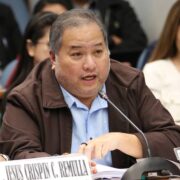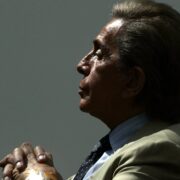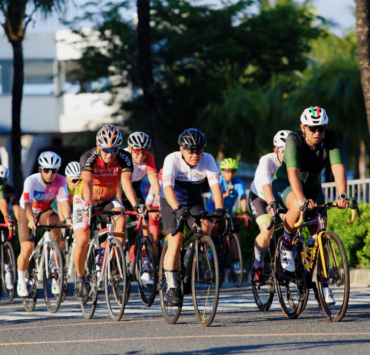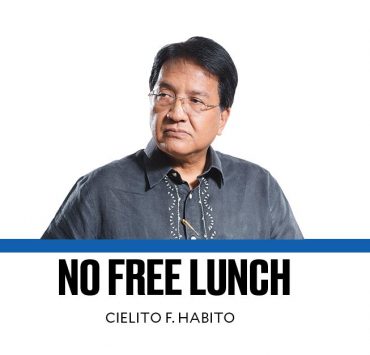A repudiation of the Duterte doctrine

Carlito Salomon was dismissed from government service when he tested positive for shabu or crystal meth, the street name for the illegal stimulant, methamphetamine hydrochloride, during a random drug test 14 years ago. He was lucky it happened in 2011, not five years later, when Rodrigo Duterte assumed the presidency and waged a bloody war that left scores of drug suspects dead.
But in a landmark ruling made public on May 20 this year, the Supreme Court asserted that even the dismissal of the Muntinlupa City engineer had been unwarranted, as it found that civil servants like Salomon deserved a second chance and a shot at rehabilitation. In doing so, the country’s highest court restored a concept unfamiliar to the former president—due process.
With its decision, the Supreme Court delivered an institutional repudiation of the Duterte doctrine that drug users are irredeemable and disposable. It likewise affirmed that addiction is an illness, not a crime, and certainly not a death sentence.
Unlike Salomon, Duterte’s drug war victims didn’t have the benefit of a drug test, let alone a second or a third one. In many “Oplan Tokhang” cases, only a checklist was needed: a name, a suspicion, and an execution.
Polar opposite
As explained by its spokesperson Camille Ting, the high tribunal upheld a Court of Appeals ruling that found Salomon guilty of grave misconduct after testing positive for shabu. But instead of rubber-stamping his dismissal, the court ordered a retesting and laid down a clear framework for rehabilitation. If Salomon’s result comes back negative, he may be allowed to claim benefits and return to public service. If he tests positive again, a drug dependency examination and an intervention program will follow.
“Once certified fully rehabilitated and fit to work by his doctor, the CSC (Civil Service Commission) shall reassess his status,” Ting said, stressing that a government employee’s dismissal is only an option “if they refuse to cooperate or fail the intervention program.”
This is what due process looks like: measured, humane and anchored in constitutional rights. It is the polar opposite of what was passed off as justice under the previous administration, where neighborhood gossip was all the authorities needed to pull the trigger.
While Salomon had the privilege of an investigation, an appeal to the CSC, a review by the Court of Appeals, and now a Supreme Court ruling, thousands of drug suspects under “Tokhang” enjoyed none of that. They were executed first and denied justice permanently.
Twisted legacy
President Marcos appears to be turning away from his predecessor’s twisted legacy, even if not always decisively. He has publicly admitted that he initially focused on big-time suppliers to distance himself from the previous administration’s bloodbath. “I avoided the policy of just killing anyone who’s just suspected or accused [of using drugs],” the President said.
This course correction, however, comes with contradictions, as Mr. Marcos now wants a renewed focus on “small-time” drug offenders, saying “the addicts are coming back, [and] we need to work on that.”
His concern is not without merit, but also not without its dangers. In the absence of robust legal safeguards and institutional restraint, even the well-intentioned can fall into the same kill-or-be-killed trap that turned communities into graveyards under Duterte.
The Philippine National Police boasted that under Mr. Marcos’s “bloodless” anti-drug campaign, P43.8 billion worth of drugs were seized from July 2022 to May 2025, triple the amount from a similar period under Duterte.
A precedent and a clear message
But the true measure of success in the anti-drug campaign is not in the peso value of drug seizures, but in whether fundamental rights are protected, and whether law enforcers understand that protecting the law does not require extinguishing life.
The Salomon ruling should serve as a precedent and a clear message to every barangay official with a so-called “watch list,” to every police officer who equates effectiveness with a rising death toll, and to public servants still operating under the shadow of “Tokhang”: The prevalence of violence as policy must end.
This decision should also remind the Marcos administration that a humane approach to the drug problem goes beyond simply reducing the number of fatalities. It requires building credible institutions that treat drug dependence as a public health concern instead of a justification for extrajudicial action.
The Supreme Court’s decision speaks volumes to those watching from The Hague, where Duterte stands accused of crimes against humanity. It shows that despite the long shadow cast by his drug war, the judiciary is capable of seeing the light and delivering justice. But that justice must extend not only to public officers like Salomon, but to thousands of drug suspects who were never even given the dignity of a drug test.





















When dev’t serves power, not the public